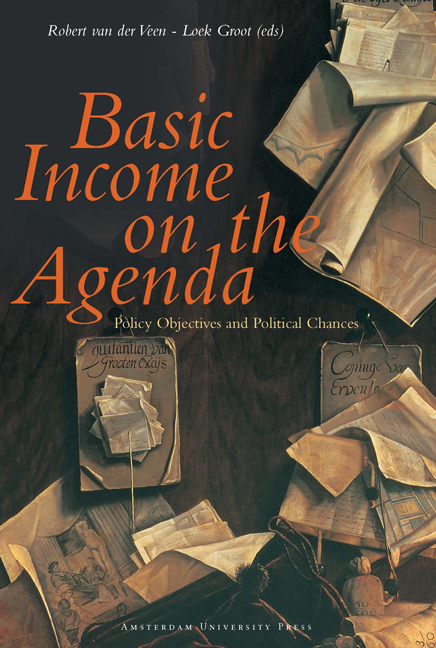What Reforms are Needed for the Minimum Insertion Income (RMI) in France?
Published online by Cambridge University Press: 23 January 2021
Summary
France did not wait until 1988, the year the minimum insertion income (‘Revenu Minimum d’Insertion’) law was enacted, to tackle the poverty problem. Numerous actions on the local and national level were carried out long before the enactment of the law. Seven means-tested social minima programs were implemented for specific groups of the population in need: senior citizens, the handicapped, single parents, the widowed, the long-term unemployed, and first time job-seekers (the young and women at home). Several local districts (around thirty) have tried out some sort of a minimum income scheme. On the other hand, numerous emergency plans were introduced for the homeless (e.g. during the 1986 and 1987 winter period) or focused on adults in need.
Although the legitimacy of the RMI is nowadays unchallenged, many shortcomings remain. The need for its reform was engaged after the demonstrations of the unemployed during the fall of 1997. One of the main questions raised was how to encourage the beneficiaries of the RMI and those on other welfare programs to go back to work. Do we need to eliminate the insertion contract, to establish a bonus for them to return to work, to do away altogether with the means-test, or merge the RMI with other welfare programs?
The RMI Ten Years Later: A Mixed Assessment
The law on RMI was meant to be innovative, by combining assistance and integration in the same plan of action. The purpose was to help the needy and to facilitate their return to work. The law brought no miracle solution to the problem of social exclusion, because the factors leading to social inequality kept growing due to the high unemployment rate and increasing impoverishment. Certainly, the RMI brought a needed assistance to an ever growing number of beneficiaries (one million in 1998 compared to 400,000 in 1989) but as far as the social integration is concerned, the results were disappointing when it came to their social integration in the work place.
The legal right and conditions of eligibility
The RMI is a differential benefit aimed at complementing the resources of the needy to a level of income sufficient to live on. The representative equation consists of s=Gg, where s designates the benefit, G the level of the amount guaranteed, and g represents the eventual professional and personal income of the beneficiaries (including social aid).
- Type
- Chapter
- Information
- Basic Income on the AgendaPolicy Objectives and Political Chances, pp. 268 - 275Publisher: Amsterdam University PressPrint publication year: 2000



